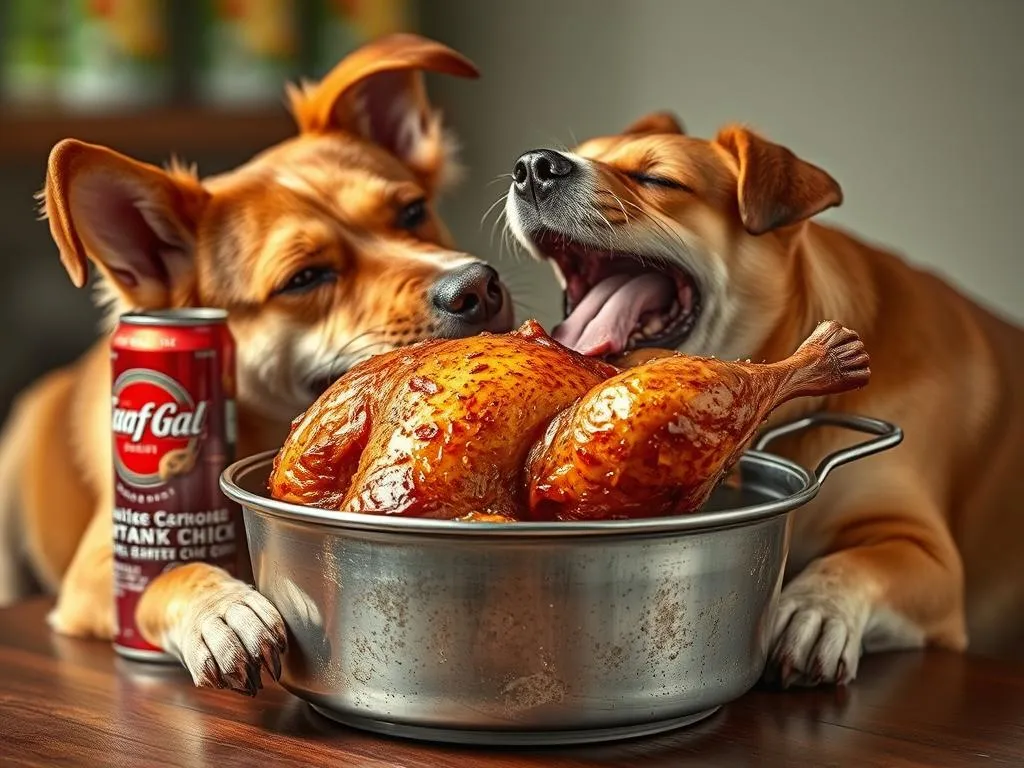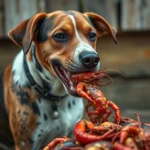
Introduction
Understanding dog nutrition is crucial for ensuring your furry friend’s overall health and wellbeing. A balanced diet not only contributes to a dog’s physical health but also affects their energy levels, coat condition, and longevity. A common question among dog owners is, can dogs eat rotisserie chicken? This inquiry highlights the importance of discerning safe and healthy food options for our pets.
In this article, we will explore the essentials of dog nutrition, the role of protein in their diet, the nutritional breakdown and benefits of rotisserie chicken, as well as how to safely incorporate it into their meals. We’ll also discuss alternatives to rotisserie chicken and what to monitor when introducing new foods into your dog’s diet.
Understanding Dog Nutrition
The Basics of Canine Diet
Dogs, much like humans, require a variety of nutrients to thrive. A balanced canine diet consists of:
- Proteins: Necessary for growth, muscle development, and overall health.
- Fats: Provide energy and support cell function.
- Carbohydrates: Serve as an energy source and aid in digestion.
- Vitamins and minerals: Essential for various bodily functions.
Each of these nutrients plays a vital role, and it’s important for dog owners to ensure that their pets receive a well-rounded diet.
Common Dietary Requirements by Dog Size and Breed
Nutritional needs can differ significantly based on a dog’s size, breed, age, and activity level. Here’s a quick breakdown:
- Small Breeds: Typically require higher protein concentrations due to their fast metabolism.
- Medium Breeds: Need a balanced diet that supports their moderate energy levels and growth.
- Large Breeds: Require controlled protein and fat levels to prevent obesity and growth-related issues.
Age and activity level also significantly influence dietary requirements. Puppies need more calories and nutrients for growth, while senior dogs may require a diet lower in calories but higher in specific nutrients for joint and heart health.
The Role of Protein in a Dog’s Diet
Importance of Protein
Protein is a cornerstone of a dog’s diet, essential for growth, muscle development, and overall health. It provides the building blocks for tissues and contributes to the production of enzymes and hormones. Dogs need a consistent supply of protein to maintain optimal health.
Sources of Protein for Dogs
When considering protein sources, it’s important to recognize the differences between animal-based and plant-based proteins.
- Animal-based proteins: These include meats like chicken, beef, and fish. They are generally more complete, offering essential amino acids that dogs need.
- Plant-based proteins: While they can be included in a dog’s diet, they often lack certain amino acids and should not be the primary protein source.
Meat, particularly chicken, plays a significant role in canine nutrition, offering high-quality protein that is both palatable and digestible.
Rotisserie Chicken: A Popular Food Choice
Nutritional Breakdown of Rotisserie Chicken
Rotisserie chicken is a popular food choice among dog owners due to its high protein content and flavor. Generally, a serving of rotisserie chicken contains:
- High-quality protein (around 25 grams per 3.5 ounces)
- Essential vitamins like B6 and B12
- Minerals such as phosphorus and selenium
With such a nutritional profile, rotisserie chicken can be a great supplement to a dog’s diet when fed correctly.
Benefits of Feeding Rotisserie Chicken to Dogs
There are several benefits to feeding your dog rotisserie chicken:
- Taste appeal: Most dogs find rotisserie chicken highly palatable, making it a great option for picky eaters.
- Recovery aid: Rotisserie chicken can be particularly beneficial during recovery from illness, providing easily digestible protein.
Potential Risks and Concerns
While rotisserie chicken can be a nutritious addition to your dog’s diet, there are potential risks:
- Seasoning and additives: Many store-bought rotisserie chickens are seasoned with garlic, onion, or other spices that can be harmful to dogs. It’s crucial to check the ingredients before sharing.
- Bones: Cooked bones can splinter and pose choking hazards or cause internal injuries. Always ensure that any chicken fed to dogs is boneless and free of sharp edges.
How to Safely Feed Rotisserie Chicken to Your Dog
Preparation Tips
To safely feed rotisserie chicken to your dog, follow these preparation tips:
- Debone the chicken: Carefully remove all bones before serving the chicken to your dog.
- Remove skin and excess fat: The skin can be high in fat, which is not advisable for many dogs, especially those prone to pancreatitis.
Portion Control
It’s essential to practice portion control when feeding rotisserie chicken to your dog. The amount you can safely feed depends on your dog’s size and dietary needs:
- Small dogs: 1 to 2 ounces per serving.
- Medium dogs: 2 to 4 ounces per serving.
- Large dogs: 4 to 6 ounces or more per serving, depending on their activity level.
Frequency of Feeding
Rotisserie chicken should be treated as an occasional treat rather than a staple in your dog’s diet. Aim to include it in their meals a few times a week, ensuring it complements their balanced diet rather than replacing it.
Alternatives to Rotisserie Chicken
Other Safe Protein Options
If you’re looking for alternatives to rotisserie chicken, consider these safe protein sources for dogs:
- Cooked turkey
- Beef (lean cuts)
- Fish (like salmon and sardines)
- Eggs
These options can provide variety and additional nutrients to your dog’s diet.
Commercial Dog Foods with Chicken
Many commercially available dog foods feature chicken as a primary ingredient. These are formulated to meet the nutritional needs of dogs and can be an excellent option for those who prefer convenience. Always choose high-quality brands that use real chicken and avoid fillers.
Homemade Dog Food Recipes
If you’re inclined to prepare meals for your dog, here are two simple recipes that include chicken:
Chicken and Rice
- Ingredients:
- 1 cup of cooked, shredded rotisserie chicken
- 1 cup of cooked white rice
-
1/2 cup of cooked carrots
-
Instructions:
- Combine all ingredients in a bowl.
- Serve once cooled.
Chicken Vegetable Stew
- Ingredients:
- 1 cup of cooked, shredded rotisserie chicken
- 1 cup of diced potatoes
- 1 cup of peas
-
2 cups of low-sodium chicken broth
-
Instructions:
- Combine all ingredients in a pot.
- Simmer until vegetables are tender.
- Allow to cool before serving.
Monitoring Your Dog’s Reaction
Signs of Allergies or Intolerances
When introducing rotisserie chicken or any new food to your dog’s diet, it’s essential to monitor for signs of allergies or intolerances. Common symptoms include:
- Vomiting
- Diarrhea
- Itching or skin irritations
- Changes in behavior
If you notice any of these symptoms, discontinue feeding the chicken and consult your veterinarian.
Consulting Your Veterinarian
Before making significant changes to your dog’s diet, it’s always a good idea to consult your veterinarian. They can help guide you based on your dog’s specific health needs.
Adjusting Diet Based on Health Conditions
Certain health issues, such as pancreatitis or food allergies, may require you to adjust your dog’s diet significantly. Work with your veterinarian to determine the best dietary approach for your dog’s unique situation.
Conclusion
In summary, understanding dog nutrition is vital for ensuring a long, healthy life for your canine companion. Rotisserie chicken can be a beneficial addition to your dog’s diet when properly prepared and served in moderation. By recognizing the nutritional needs of your dog and considering the potential risks associated with feeding human foods, you can make informed choices that support their health.
Ultimately, a balanced diet combined with safe food choices will significantly contribute to your dog’s overall wellbeing. As you explore the world of dog nutrition, remember that the goal is to enhance their quality of life while ensuring they enjoy their meals.
This article provides a comprehensive overview of dog nutrition and the specific role of rotisserie chicken. If you have experiences or questions about feeding your dog rotisserie chicken, feel free to share your thoughts!









